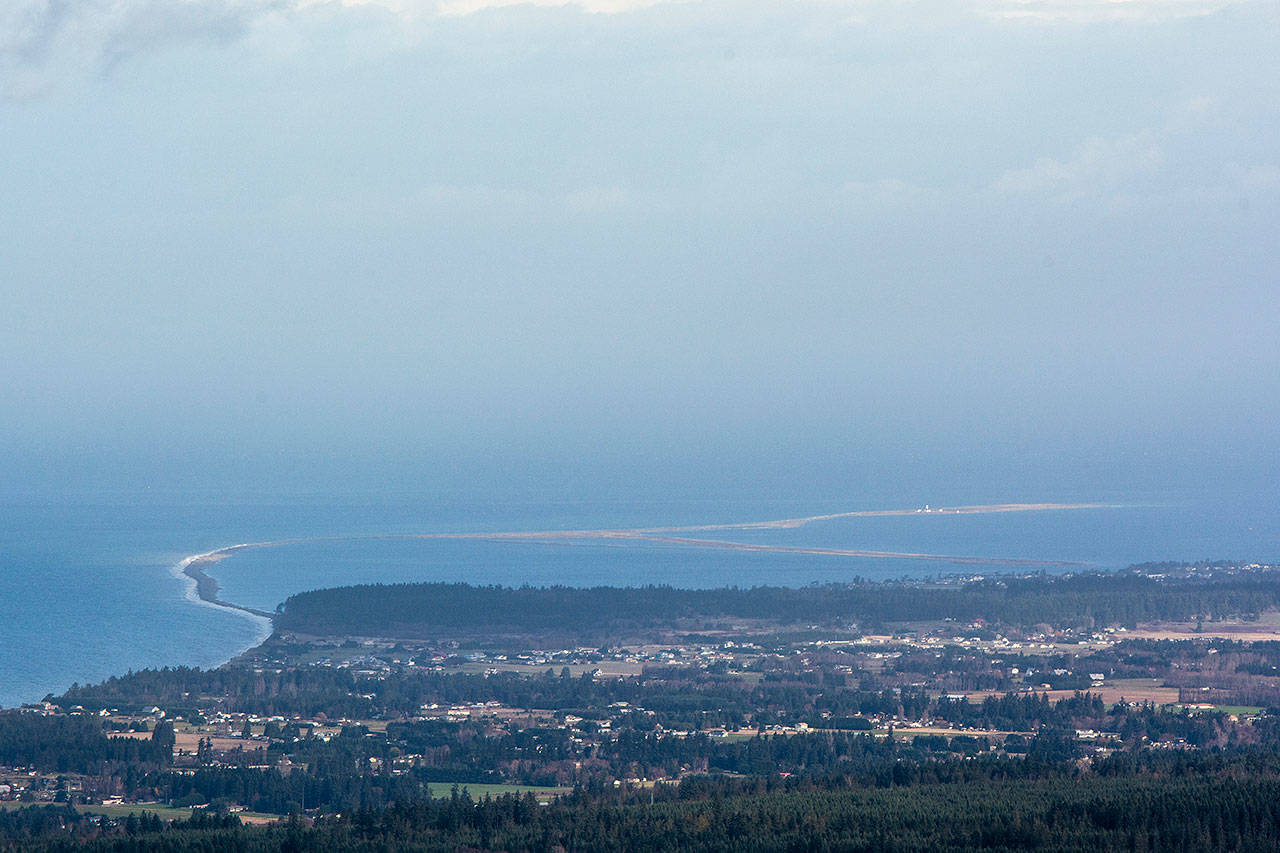The Jamestown S’Klallam Tribe will know before Christmas whether it will secure two Clallam County permits needed for its proposal to re-establish its oyster farm inside the Dungeness National Wildlife Refuge.
Clallam County Hearing Examiner Andrew Reeves said during a Nov. 21 hearing that he would render his decision on a Conditional Use Permit and a Shoreline Substantial Development Permit by Dec. 23.
The Clallam County Department of Community Development has recommended that Reeves deny the tribe’s application, arguing that the project is “not consistent with the Natural Shoreline Designation, does not meet the Shoreline CUP Criteria, and will negatively impact the wildlife at the Dungeness National Wildlife Refuge,” according to a mid-November staff report.
Reeves typically is required to make a decision within 10 working days, but because he has “literally thousands of pages” he has reviewed, with more material already submitted, he asked the tribe for an extension to Dec. 23.
“This is clearly not the typical project that comes through my way,” he said.
The tribe’s oyster farm would be on 50 acres of leased Department of Natural Resources tideland within the Dungeness National Wildlife Refuge. The farm would be in the bay about 4,000 feet north of Cline Spit.
If approved, the tribe would still need permits and licenses from the U.S. Army Corps of Engineers, the state Department of Natural Resources, the state Department of Health, according to county documents.
During public comment, Marc Sullivan, vice chair of the Washington state chapter of the Sierra Club, expressed support for the project.
“As you might imagine, it’s not all that usual for the Sierra Club to make positive comments about commercial operations in a wildlife refuge,” Sullivan said. “My perception is the true reasons we did that is … of the long history of oyster farming in the refuge.
“Our experience with the tribe is that we trust their environmental sensitivity more than we would an ordinary commercial operator and we propose you allow them to proceed.”
The area has been used for oyster farming since before 1953 through a succession of private owners.
The tribe purchased the farm in 1990 and operated it for a few years before it was de-certified due to contamination in the bay.
The state Department of Health warned about deteriorating water quality in 1995 and closed portions of the bay in 1997, 1999 and 2003, mostly because of fecal coliform. The oyster operation was then closed in 2005, according to county records.
The tribe argued during the hearing that when oyster operations ceased in 2005 it helped in the effort to improve water quality in the bay so that it could continue cultivating oysters.
In 2015, the Department of Health upgraded 688 acres — which included the proposed site — from “conditionally approved” to “approved.”
The farm itself would be on 34 acres of the leased land, leaving 25-foot buffers for conservation of eelgrass, according to county documents.
There would be a maximum of 80,000 on-bottom bags — black mesh oyster bags anchored to the substrate — on the inside of the spit. Each bag would be about 2 feet wide by 3 feet long and each row would be about 10 feet apart.
The project would be developed in three phases and the tribe has agreed that if there are impacts to birds or eelgrass beds in the initial phases, placement of additional bags may be reduced.
The tribe wold have three to 15 employees that would access the site by a small boat.
The tribe submitted its application to the county Dec. 29, 2017, and in February 2018 the county had issued a Determination of Non-Significance.
After concerns about impacts to birds and compatibility with the refuge and after the U.S. Army Corps of Engineers determined that the project would require National Environmental Policy Act review, the county withdrew its Determination of Non-Significance in May 2018.
“Over the 50+ year history of commercial oyster farming that occurred at the project site in Dungeness Bay, no reports were made from USFWS indicating that commercial shellfish operations were incompatible or interfered with Refuge functions, particularly regarding migratory birds,” the tribe wrote in response to the county. “The scientific record does not support a conclusion that shellfish farming negatively impacts bird use of estuaries.”
On Oct. 31, 2019, DCD issued a Mitigated Determination of Non-Significance.
The U.S. Fish and Wildlife Service has raised concerns about the project, but after consultation with the Jamestown S’Klallam Tribe, USFWS rescinded two letters it had submitted to the county.
“We have a better understanding of their proposed aquaculture operations,” the USFWS wrote Aug. 6. “We recognize there is little site-specific research available on impacts of commercial, on-bottom bag aquaculture to bird species found on the Refuge.
“Nevertheless, we are concerned about potential impacts to the Refuge wildlife and habitat based on the proposed location for this activity. We recommend operations and monitoring activities occur outside of the migration and wintering period for shorebirds and waterfowl, should a permit be provided.”



